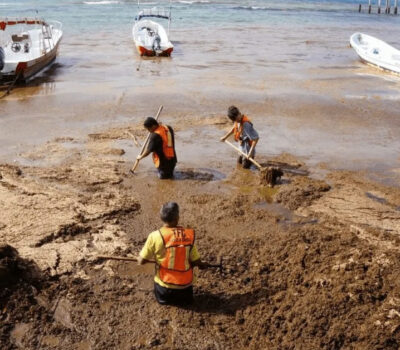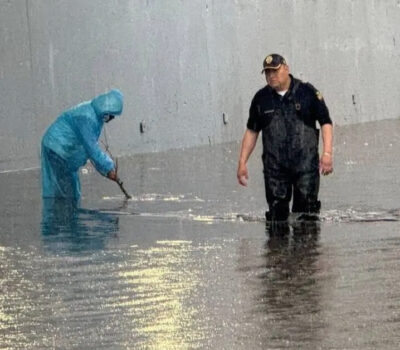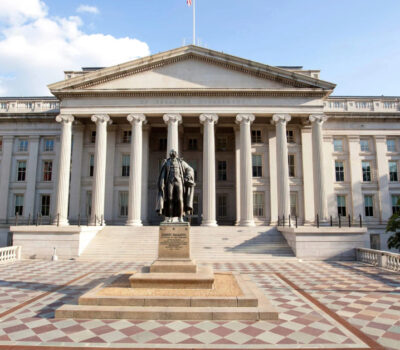Jalisco Governor Pablo Lemus presented major mobility, security, and tourism projects to President Sheinbaum ahead of the 2026 World Cup, positioning the state as Mexico’s premier host.
Less than a year before the kickoff of the 2026 FIFA World Cup, the Governor of Jalisco, Pablo Lemus Navarro, met with Mexican President Claudia Sheinbaum Pardo in Mexico City to present an ambitious slate of projects aimed at cementing Jalisco’s role as the top host state in the country. The meeting highlighted investments across infrastructure, mobility, security, hospitality, and culture—laying the foundation for a lasting legacy beyond the tournament.
Governor Lemus said more than 2.5 million visitors are expected to arrive in Jalisco during the World Cup, marking a significant opportunity for the state to gain global visibility and strengthen its economic and tourism development.
“It was a working meeting that puts us at the forefront of being the best World Cup host in Mexico, and also in the United States and Canada, because we’re going to do it the Jalisco way,” said Lemus.
A mobility makeover
Central to the state’s preparation is the comprehensive rehabilitation of the Chapala highway, a major route that links Guadalajara International Airport with the Metropolitan Area. The project comes with a price tag of over 2.5 billion pesos. Plans for the future Line 5 of the city’s public transportation system are also tied to this key corridor, further reinforcing connectivity between the airport and the host city.
Security and surveillance upgrades
To ensure safety during the tournament, the modernization of the C5 Escudo Jalisco video surveillance system is underway. The system, a backbone of the state’s security apparatus, will be enhanced to meet the demands of the increased visitor volume and international scrutiny the World Cup brings.
Expanding hotel capacity
The state is also bolstering its hospitality infrastructure. With 83,000 hotel rooms already available, another 38 hotels are planned with an estimated investment of 20 billion pesos. These will be strategically located across Guadalajara, Puerto Vallarta, Costalegre, Tapalpa, and Autlán—key tourism destinations that will benefit from the global influx of visitors.
Airport expansion in full swing
Airports in Guadalajara and Puerto Vallarta—both considered vital gateways for international and domestic travel—are undergoing expansion and upgrades. These improvements aim to streamline arrivals and departures, and support the expected surge in air traffic during the tournament.
Cultural showcase
In addition to logistics and infrastructure, Jalisco is placing a strong emphasis on culture. The state will highlight its identity through iconic experiences that include mariachi, tequila, charrería, and its 12 officially designated “Pueblos Mágicos” (Magical Towns). A World Cup festival will be staged in Guadalajara’s Historic Center to enrich the fan experience and celebrate Jalisco’s deep-rooted cultural heritage.
Game days in Guadalajara
The Estadio Akron in Guadalajara is set to host four group stage matches on June 11, 18, 23, and 26. One of these matches will feature Mexico’s national team, marking the first time a World Cup match with El Tri will be played on Jalisco soil.
Federal collaboration
Also present at the meeting with President Sheinbaum were Mexico City Mayor Clara Brugada Molina and Nuevo León Governor Samuel García Sepúlveda—leaders of the other two Mexican host regions for the tournament. The trio of cities—Guadalajara, Monterrey, and Mexico City—will play central roles in Mexico’s World Cup hosting duties.
Governor Lemus emphasized that Jalisco’s plans go beyond the immediate demands of the tournament. The projects are designed to create a long-term service and logistics model that transforms the state’s urban and tourism infrastructure well beyond 2026.
“This isn’t just about a month of football,” Lemus said. “This is about building a legacy that continues to benefit Jalisco long after the final whistle.”
Jalisco Governor Pablo Lemus presented major mobility, security, and tourism projects to President Sheinbaum ahead of the 2026 World Cup, positioning the . . .











